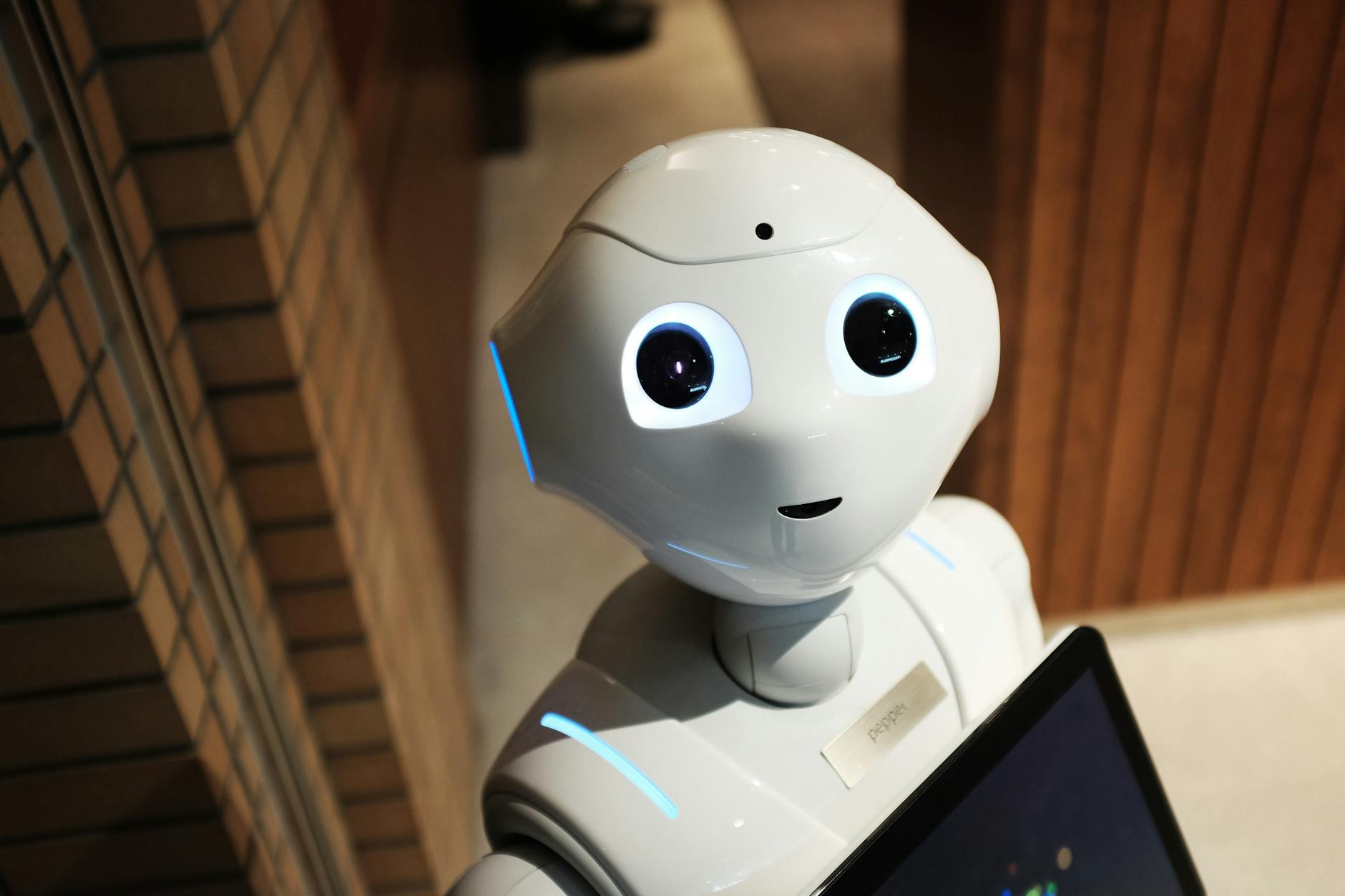1. Introduction: A Marketing Revolution Under Way
Artificial Intelligence is no longer a futuristic buzzword—it’s the engine of modern marketing strategy. In 2025, tools like generative AI, predictive analytics, and autonomous campaign agents are redefining how agencies plan, create, and measure campaigns. This blog explores the strategic, operational, creative, and ethical dimensions of this new marketing era, supported by the latest industry trends and case studies.
2. Market Momentum: AI Adoption Has Gone Mainstream
- According to ContentGrip, the global AI-in-marketing market is projected to reach US $47.3 billion in 2025—from just $12 billion in 2020, a 36.6% CAGRMarTech+3The Business of Fashion+3Business Insider+3ContentGrip.
- Influencer Marketing Hub reports that 69% of marketers now use AI in daily operations, and 34% report significant improvements in outcomes due to AI useInfluencer Marketing Hub.
- McKinsey’s March 2025 survey estimates 75%+ of organizations leverage AI in at least one business function, with many restructuring workflows and governance models to maximize valueMcKinsey & Company.
Implication for agencies: AI is no longer an optional add‑on—it’s rapidly becoming a strategic pillar.
3. Core Capabilities: How AI is Reinventing Marketing Execution
A) Predictive Analytics and Market Insight
AI analyzes historical data and unstructured signals (like social closely listening) to forecast customer behavior, segment audiences, and fine-tune pricing and lead scoringibm.com.
Harvard Business Review notes that generative AI is transforming not just customer service or content but market research, enabling faster, richer insights into consumer sentiment and enabling real‑time feedback loopshbr.org.
B) Generative Content & Storytelling
From AI-generated blog posts and emails to scripts, visuals, and video, generative AI tools are advancing at speed. Omneky, for example, now offers platforms to autonomously generate and launch multi-format ad campaigns across channelsen.wikipedia.org.
Generative storytelling elevates personalization—crafting messages that resonate individually at scale, a trend well documented by Vidrih & Mayahi on the rise of AI‐driven narrative marketingarXiv.
C) Autonomous Campaign Orchestration
Platforms like Spectrum Reach Architect are deploying AI to dynamically plan ad budgets, frequency, and channels using proprietary first-party data in real time—optimizing across digital, streaming, and broadcast mediaTV Tech.
Meta envisions fully automated ad campaigns: marketers input goals and budgets, and AI handles creative generation, audience targeting, and optimization—a shift expected to drive major ad revenue growth by 2030investors.com.
4. Strategic Shifts: Redefining Agency Structures and Leadership
Agencies must rethink org design, governance, and talent:
- EY has launched EYStudio+, integrating design, tech, CX, data, and marketing around its AI platform to deliver unified digital‑experience consulting—a model leading toward integrated AI‑driven storytelling and deliverytheaustralian.com.au+1.
- Publicis has earmarked nearly €600 million in 2025 for bolt‑on acquisitions of marketing AI startups (like Persado, Superscale.ai, Mechanics, etc.), fueling internal transformation via external capabilitiesBusiness Insider.
Takeaway: Agencies need strong leadership, cross-disciplinary teams, and strategic alignment—not isolated pilots.
5. Creative Revolution (With Human Guardrails)
AI can accelerate creativity—but it isn’t creativity itself. As Canva’s recent marketing‑AI report emphasizes, the strongest outcomes weave AI efficiency with human insight, ensuring brand authenticity, emotional intelligence, and strategic intentcanva.com.
Yet misuse can backfire. From backlash over low-quality AI-generated ads to early examples of “AI slop,” brands risk alienating audiences if automated output lacks meaningful design or human oversighten.wikipedia.org.
6. Ethical and Trust Imperatives
With great power comes responsibility:
- Research by Adanyin highlights consumer concerns about privacy and fairness in AI marketing—the call for transparency, bias audits, and consumer control is louder than everarXiv.
- Yilmaz & Ashqar document how AI‑generated marketing messages embed bias. That means slogans targeting age, gender, income or education can unintentionally reinforce stereotypes unless actively auditedarXiv.
- The phenomenon of “AI washing”—where firms exaggerate their AI claims—threatens credibility and legal exposure. Marketers must avoid hollow buzzwordismen.wikipedia.org.
Best practice: Build explainable AI, disclose use of AI where appropriate, and audit for fairness across campaigns.
7. Tactical Shifts: Where Agencies Should Focus Today
| Focus Area | Action Item for Agencies |
|---|---|
| Generative Engine Optimization | Ensure client content is visible & credible to AI overviews and LLM citationsen.wikipedia.org |
| Training & Upskilling | Provide AI training to teams; e.g., Indeed reports developers moving rapidly to AI-generated code use (currently ~33%)Business Insider |
| AI Governance | Establish governance frameworks to monitor usage, performance, risk mitigationMcKinsey & Company |
| Integration | Embed AI tools into platforms, workflows, and campaign tooling rather than treating AI as standalone |
| ROI Tracking | Define metrics and KPIs—e.g., efficiency gains, conversion lift, engagement uplift from AI interventions |
| Brand & Human Oversight | Fund human review, style/guideline checks, creativity audits for AI content |
8. Real World Spotlight: AI in Action
- Unilever implemented generative AI to scale influencer content and create digital twins for products—boosting a Dove campaign to 3.5 billion impressions and attracting 52% new customers through AI-generated visual content variantswsj.com.
- Spectrum Reach launched its AI planning tool nationally, helping local advertisers optimize across media using first-party data and dynamic AI planning toolsTV Tech.
- Meta is enabling millions of advertisers to use AI-enhanced Reels that drove ~5% conversion lift—and projections show AI‑driven ad tools could yield up to $28 billion in extra ad revenue by 2030investors.com.
9. Why This Matters for Your Agency and Clients
- Efficiency: AI saves time on repetitive tasks—from segmentation to copywriting to optimization—freeing human talent for strategy and creativity.
- Scalability: Small agencies can compete with global firms using AI-powered ad generation and orchestration.
- Personalization: Hyper-targeted campaigns drive conversion. Consumers increasingly expect brand experiences tailored to their needs—from first click to long-term loyalty.
- Competitive Strategy: Brands not embraced by AI-powered content and overlooked in generative search may disappear from AI-generated consumer journeys. GEO (Generative Engine Optimization) is a fresh frontier agencies must leaden.wikipedia.org.
10. Preparing for a Sustainable AI-Powered Future
- Adopt an agency-wide AI roadmap: pilot use cases, governance frameworks, performance benchmarks.
- Invest in capability building: both AI literacy and advanced specialist roles (e.g., prompt engineers, AI data governance leads).
- Establish audit processes: fairness, transparency, brand alignment.
- Combine AI and human judgment: validate creative outputs, refine strategy, supervise autonomous tools.
- Build thought leadership in GEO: ensure client content is structured for visibility in AI-generated responses.
- Track ROI: using KPIs aligned to client business goals, from efficiency gains to LTV improvement.
- Stay agile and curious: follow evolving regulations, tools, research, and ethical standards.
11. Conclusion
We are now firmly in a new era of marketing. Generative AI, predictive intelligence, and autonomous systems are reshaping how agencies think, create, and deliver value. The winners will be those who move beyond hype—who build thoughtful governance, think strategically about personalization and brand, and who deploy AI with human oversight and ethical integrity.
For your marketing agency, this is your moment. You can lead clients through this transformation by helping them adapt—not just to tools, but to an entirely new way of operating and engaging. AI is here to stay. The question is: how will you harness it for growth, creativity, and trust in the marketing landscape of 2025 and beyond?

